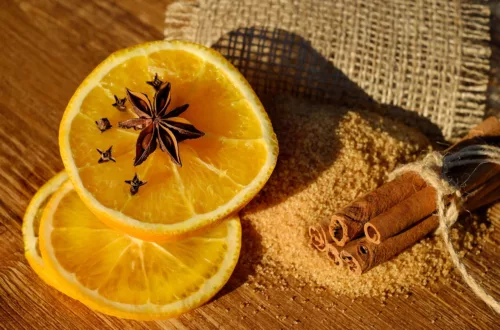The holiday season is a time of joy and celebration, but it can also be a time of overeating and indigestion. Many people suffer from digestive issues during the holidays due to the abundance of rich, fatty foods, and sugary treats. Fortunately, there are several herbal solutions that can help relieve these symptoms and promote healthy digestion.
Disclaimer: This article is provided for informational purposes only and should not replace professional medical advice. Please consult with a qualified healthcare practitioner or herbalist before using any herbal remedies.
Indigestion and overeating can cause a variety of uncomfortable symptoms, including bloating, gas, nausea, and heartburn. Understanding the causes of these symptoms is the first step in finding a solution. Common causes of indigestion and overeating during the holidays include overindulging in rich, fatty foods, drinking too much alcohol, and eating too quickly. Stress and lack of physical activity can also contribute to digestive issues.
Herbal remedies have been used for centuries to treat stomach problems and promote healthy digestion. From ginger and peppermint to chamomile and fennel, there are several herbs that can help soothe the digestive system and alleviate symptoms of indigestion and overeating. In this article, we will explore some of the most effective herbal remedies for digestive issues during the holidays.
Key Takeaways~ Holiday Indigestion
- Overeating and indigestion are common during the holidays due to rich, fatty foods, alcohol, and stress.
- Herbal remedies such as ginger, peppermint, chamomile, and fennel can help alleviate symptoms of indigestion and promote healthy digestion.
- Lifestyle changes, over-the-counter remedies, and consulting a doctor are other options for treating digestive issues during the holidays.
Understanding Holiday Indigestion and Overeating
When it comes to holiday feasting, it’s easy to overindulge in rich, heavy foods and sugary treats. Unfortunately, this can lead to indigestion, bloating, and discomfort. In this section, we’ll explore the causes of indigestion and overeating, and discuss some herbal solutions that can help alleviate these symptoms.
Indigestion, also known as dyspepsia, is a common condition that affects many people. It can cause pain or discomfort in the upper abdomen, bloating, and gas. Indigestion can be caused by a variety of factors, including overeating, eating too quickly, consuming spicy or fatty foods, and stress.
Overeating can also lead to stomach pain, bloating, and discomfort. When we eat too much, our stomachs produce more acid to digest the food, which can lead to acid reflux and heartburn. Overeating can also cause constipation, diarrhea, and other digestive problems.
Gastroesophageal reflux disease (GERD) is a more severe form of acid reflux that can cause chronic heartburn and damage to the esophagus. Symptoms of GERD include chest pain, difficulty swallowing, and regurgitation of food.
Herbal remedies can be a helpful way to alleviate the symptoms of indigestion and overeating. For example, ginger has been used for centuries to soothe upset stomachs and aid digestion. Peppermint can also help relieve bloating and gas, while chamomile can calm an upset stomach and reduce inflammation.
In addition to herbal remedies, there are also some lifestyle changes that can help prevent indigestion and overeating. Eating smaller, more frequent meals can help keep the digestive system working smoothly, while avoiding spicy and fatty foods can help reduce the risk of acid reflux and heartburn. Staying hydrated and getting regular exercise can also help keep the digestive system healthy.
Common Causes of Holiday Indigestion
The holiday season is a wonderful time to celebrate with family and friends, but it can also be a time of overindulgence and digestive discomfort. Here are some common causes of holiday indigestion and overeating that we should be aware of:
Holiday Food
During the holidays, we tend to indulge in rich and heavy foods that we may not eat on a regular basis. These foods can be high in fat, sugar, and salt, which can lead to digestive discomfort, bloating, and weight gain. It’s important to enjoy these foods in moderation and balance them with healthier options like fruits, vegetables, and lean protein.
Thanksgiving
Thanksgiving is a holiday that revolves around food, and it’s easy to overeat when faced with a table full of delicious dishes. We often eat until we’re uncomfortably full and then feel guilty or ashamed. To avoid this, we can try to eat slowly, savoring each bite, and stop when we feel satisfied, not stuffed.
December
December is a month filled with holiday parties, dinners, and events, which can lead to overindulgence and weight gain. We may feel pressured to eat and drink more than we normally would, which can lead to digestive discomfort and hangovers. It’s important to listen to our bodies and say no when we’ve had enough.
Alcohol
Alcohol is often a big part of holiday celebrations, but it can also be a major contributor to digestive discomfort and weight gain. Technically a poison to your system; Alcohol can irritate the stomach lining, leading to acid reflux and bloating. It can also be high in calories and sugar, which can contribute to weight gain. It’s important to drink alcohol in moderation and balance it with plenty of water.
Stress
The holidays can be a stressful time, with all the shopping, cooking, and socializing. Stress can affect our digestive system, leading to indigestion, bloating, and constipation. It’s important to take time for ourselves, practice relaxation techniques like deep breathing or meditation, and get enough sleep.
Lifestyle
Our lifestyle choices can also contribute to holiday indigestion and overeating. Lack of exercise, poor sleep, and smoking can all affect our digestive system and lead to weight gain. It’s important to maintain a healthy lifestyle all year round, but especially during the holidays, to prevent digestive discomfort and maintain a healthy weight.
Symptoms to Watch Out For
When it comes to holiday overeating, it’s important to be mindful of the symptoms that may arise. Overeating can lead to a variety of uncomfortable symptoms, such as bloating, nausea, heartburn, and a burning sensation in the chest. These symptoms can be caused by the stomach producing too much acid, which can irritate the lining of the esophagus.
If you experience chest pain or shortness of breath, it’s important to seek medical attention immediately. These symptoms can be a sign of a more serious condition, such as a heart attack.
In addition to these symptoms, overeating can also lead to fatigue and a loss of appetite. If you notice that you’re feeling tired or don’t feel like eating, it may be a sign that you’ve overindulged.
Another symptom to watch out for is black, tarry stool. This can be a sign of internal bleeding, which can be caused by a variety of factors, including overeating. If you notice this symptom, it’s important to seek medical attention right away.
Overall, it’s important to listen to our bodies and be mindful of the symptoms that may arise from overeating during the holidays. By being aware of these symptoms, we can take steps to prevent them and enjoy the holiday season to the fullest.
Herbal Solutions for Indigestion
During the holiday season, it’s common to overindulge in rich, heavy meals and sweet treats, which can lead to indigestion. Fortunately, there are several herbal solutions that can help alleviate symptoms and prevent indigestion from occurring in the first place.
Ginger~ Holiday Indigestion
One of the most effective herbs for indigestion is ginger. Ginger has been used for centuries to treat digestive issues, including nausea, bloating, and stomach pain. You can take ginger in several forms, including fresh ginger root, ginger tea, or ginger supplements. Ginger can also be added to meals as a spice.
Peppermint~ Holiday Indigestion
Peppermint is another herb that can help relieve indigestion. This traditional candy cane herb is known for its ability to relax the muscles in the digestive tract, which can ease symptoms of bloating and gas. Peppermint can be taken as a tea or in supplement form.
Chamomile~ Holiday Indigestion
Chamomile is an herb that can help soothe the digestive system and reduce inflammation. Chamomile tea is particularly effective for indigestion, as it can help relax the muscles in the digestive tract and reduce stomach acid.
Apple Cider Vinegar~ Holiday Indigestion
Apple cider vinegar is another natural remedy that can help alleviate indigestion. It works by increasing stomach acid production, which can help break down food more effectively. Apple cider vinegar can be taken as a supplement or added to water and consumed before meals.
Baking Soda~ Holiday Indigestion
Baking soda is a simple, yet effective remedy for indigestion. This common option can help neutralize stomach acid, which can relieve symptoms of heartburn and indigestion. Simply mix a teaspoon of baking soda with water and drink before meals.
Fennel~ Holiday Indigestion
Fennel is an herb that can help reduce gas and bloating, making it an effective remedy for indigestion. Fennel can be taken as a tea or in supplement form.
Licorice Root~ Holiday Indigestion
Another great option is Licorice root; it can help soothe the digestive system and reduce inflammation. Licorice root can be taken as a supplement or added to tea.
In summary, there are several herbal solutions that can help alleviate symptoms of indigestion during the holiday season. Ginger, peppermint, chamomile, apple cider vinegar, baking soda, fennel, and licorice root are all effective remedies that can help soothe the digestive system and prevent indigestion from occurring.
Lifestyle Changes for Prevention
When it comes to preventing holiday indigestion and overeating, making a few lifestyle changes can go a long way. Here are some tips:
- Eat mindfully: Take your time when eating and savor each bite. Pay attention to the flavors, textures, and smells of your food. Eating slowly can help you feel full faster and prevent overeating.
- Stay hydrated: Drinking enough water can help keep you feeling full and prevent overeating. Aim for at least 8 glasses of water per day.
- Get enough sleep: Lack of sleep can disrupt your metabolism and lead to overeating. Aim for at least 7-8 hours of sleep per night.
- Reduce stress: Stress can trigger overeating. Consider practicing relaxation techniques such as deep breathing, meditation, or yoga.
- Watch your blood sugar: Eating too many carbs or sugary foods can cause blood sugar spikes and crashes, leading to overeating. Aim for balanced meals with plenty of veggies and protein.
By making these lifestyle changes, we can prevent holiday indigestion and overeating and enjoy the festivities without feeling guilty.
Over-the-Counter Remedies
When it comes to overeating during the holidays, indigestion is a common problem. Luckily, there are several over-the-counter remedies that can help alleviate the discomfort.
Antacids are a popular choice for indigestion relief. They work by neutralizing stomach acid to reduce heartburn, acid reflux, and other digestive issues. Some common over-the-counter antacids include Tums, Rolaids, and Maalox.
Sodium bicarbonate is another effective antacid that can be found in products like Alka-Seltzer and baking soda. It works by neutralizing stomach acid and can provide quick relief for indigestion. However, it’s important to note that excessive use of sodium bicarbonate can lead to side effects like nausea and vomiting.
For more severe cases of indigestion, proton pump inhibitors (PPIs) may be necessary. These medications work by reducing the production of stomach acid and can provide long-lasting relief. Some common over-the-counter PPIs include Prilosec and Nexium.
It’s important to always read the label and follow the instructions when taking any over-the-counter medication. If you have any concerns or questions, it’s best to consult with a healthcare professional before taking any medication.
When to Consult a Doctor
If you experience indigestion or overeating during the holiday season, it’s important to know when to consult a doctor. While herbal remedies can be effective for mild cases, more severe symptoms may require medical attention.
If you experience chest pain, it’s important to seek medical attention immediately, as it could be a sign of a heart attack. Similarly, if you experience persistent or severe symptoms of gastroesophageal reflux disease (GERD), such as acid reflux or heartburn, it’s important to consult a doctor.
If you have a history of ulcers or are experiencing symptoms such as abdominal pain or bloody stools, it’s important to consult a doctor as these could be signs of an ulcer. Additionally, if you experience symptoms such as vomiting, difficulty swallowing, or unintentional weight loss, it’s important to seek medical attention.
In some cases, over-the-counter medications may be effective in treating mild symptoms of indigestion or overeating. However, if symptoms persist or worsen, it’s important to consult a doctor. Together, we can work to find the best solution for your specific needs.
Safety and Effectiveness of Herbal Remedies
At this time of year, many of us tend to indulge in rich, heavy foods and overeat, leading to indigestion and other digestive issues. While there are many over-the-counter drugs available to treat these symptoms, some people prefer to use herbal remedies as a more natural alternative.
When it comes to the safety and effectiveness of herbal remedies, it’s important to do your research and consult with a healthcare professional before trying any new remedies. While many herbs are safe and effective, some can interact with prescription medications or cause side effects.
The FDA does not regulate herbal remedies in the same way that it regulates prescription drugs, so it’s important to be cautious and use reputable sources when researching herbal remedies. Look for information from trusted sources like the National Center for Complementary and Integrative Health or the American Herbalists Guild.
Some people prefer to use home remedies for digestive issues, such as drinking ginger tea or taking peppermint oil capsules. While these remedies may be effective for some people, it’s important to remember that they are not a substitute for medical care. If you have severe or persistent digestive issues, it’s important to see a healthcare professional for diagnosis and treatment.
Overall, herbal remedies can be a safe and effective option for treating digestive issues, but it’s important to use caution and consult with a healthcare professional before trying any new remedies.
Frequently Asked Questions
What are some natural remedies for acid reflux?
Acid reflux is a common digestive issue that can cause discomfort after eating. Some natural remedies that can help relieve acid reflux include chamomile tea, aloe vera juice, and apple cider vinegar. These remedies can help soothe the digestive tract and reduce inflammation. However, it is important to note that these remedies may not work for everyone and it is always best to consult with a healthcare professional if you have persistent acid reflux.
Which herbs are good for indigestion?
There are several herbs that can help with indigestion, including ginger, peppermint, and fennel. Ginger has anti-inflammatory properties that can help soothe the digestive tract and reduce inflammation. Peppermint can help relax the muscles in the digestive tract and reduce spasms. Fennel can help stimulate digestion and reduce bloating. These herbs can be consumed as a tea or taken in supplement form.
What tea is good for acid reflux?
Some teas that can help with acid reflux include chamomile tea, ginger tea, and licorice root tea. Chamomile tea has anti-inflammatory properties that can help soothe the digestive tract and reduce inflammation. Ginger tea can help reduce nausea and inflammation in the digestive tract. Licorice root tea can help soothe the digestive tract and reduce inflammation.
Is ginger tea effective for relieving indigestion?
Yes, ginger tea can be effective for relieving indigestion. Ginger has anti-inflammatory properties that can help soothe the digestive tract and reduce inflammation. It can also help reduce nausea and bloating.
What helps with digestion after overeating?
If you have overeaten, there are several things you can do to help with digestion. Drinking water can help flush out your system and aid in digestion. Eating foods that are high in fiber, such as fruits and vegetables, can also help with digestion. Additionally, taking a walk or doing light exercise can help stimulate digestion.
What are the worst spices for acid reflux?
Spices that are high in acid, such as chili powder and black pepper, can exacerbate acid reflux symptoms. Additionally, spicy foods can cause the muscles in the digestive tract to relax, leading to acid reflux. It is best to avoid spicy foods if you are prone to acid reflux.







